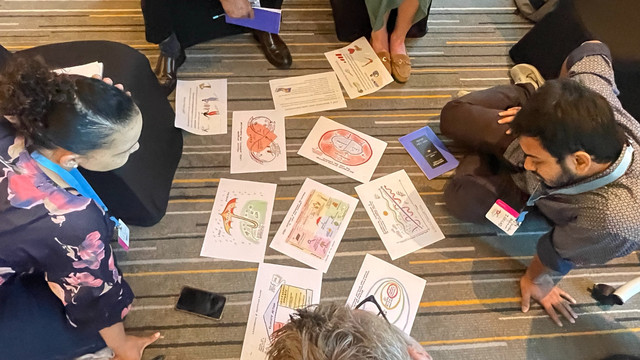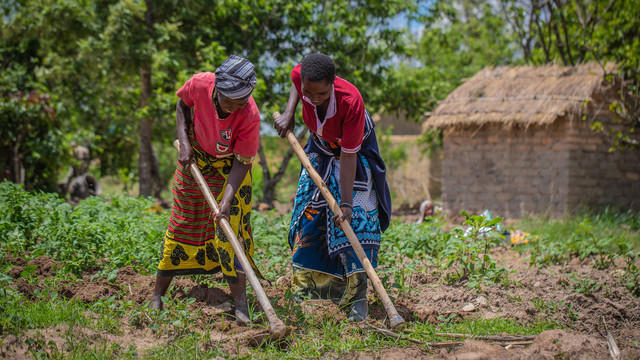Playing climate change — can games unblock the negotiations?
Everyone loves a game. Putting some fun into the serious subject of climate change can be a powerful way to explain risk and the hard choices we face.


People in a Nicaraguan village play a game to learn how climate change adaptation, ecosystem management and disaster risk reduction fit together (Photo: Maya Schaerer/NLRC)
Communication is a big part of the climate change conundrum. But something we have learnt is that most communication around climate change just doesn’t work.
There's a growing body of research in the field of psychology that we need communication that engages people, rather than just informs them — and that we need to communicate in ways that respond to people’s needs – and take account of their desires and anxieties.
In recent years, IIED teamed up with Internews to explore these issues at our Climate Communications Day side events to the international negotiations under the UN Framework Convention on Climate Change (UNFCCC).
These events, in Durban in 2011 and in Doha in 2012 focused on different approaches to telling the climate story —whether by comedians or religious leaders, movie-makers or map-makers, researchers or journalists
In each case, the most engaging approaches we experienced were the games that Pablo Suarez, Carina Bachofen and colleagues at the Red Cross/Red Crescent Climate Centre have developed.
They have designed a diverse set of games to communicate different aspects of climate change, such as the cost, value and use of early warnings, or the different ways in which women and men are vulnerable to extreme events.
As they say: "Games are a fun but serious way of helping humanity tackle a changing climate in which complexities, volatilities and uncertainties could be hallmarks of the 'new normal'".
About 4,000 people in over 40 countries have now experienced the Climate Centre’s games. They include subsistence farmers, development bank staff, schoolchildren, officials from meteorological services, students, government officials, climate policy negotiators and slum-dwellers. They've even played them in the White House in Washington DC.
Now, with the Climate Centre as IIED’s co-hosts of the Development and Climate Days, this weekend in Warsaw we want to take this approach to a new audience and give it a new challenge: tackling the UNFCCC negotiations themselves.
After a session that will use participatory games to address some of the blockages in the talks, Pablo, Carina and colleagues will engage delegates with more than ten of their tried and tested games. In a parallel session delegates will learn how to design games themselves.
In demonstrating the power of games we want to promote a methodology that all parties to the UNFCCC can use to raise public awareness of climate change and its effects. This is something that all parties agreed to do in 1992 under Article 6 of the convention, but it's an areas in which to date few have made progress.
We want to show governments that one way they can take their Article 6 obligations more seriously is to take them less seriously, with games.
Development and Climate Days at COP19 takes place on 16–17 November 2013 at Polonia Palace Hotel. Download the full programme [PDF]
Read the Climate Centre's policy brief: Can games help people manage the climate risks they face? [PDF]
Read Climate Centre’s flagship publication Games for a New Climate: Experiencing the Complexity of Future Risks [PDF]



